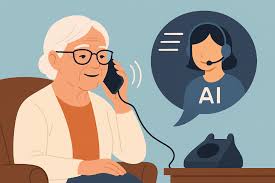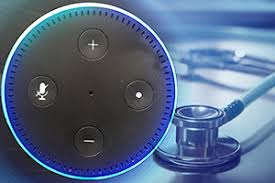Connected care in the home has the potential to address both the preferences of older adults and the societal imperative to care for a rapidly growing aging population
A practical guide to understanding autonomous AI agents, why they matter for healthcare governance, and what to do about them.
The growing ecosystem of devices and products serving peoples’ health and well-being shows us that innovators already see the opportunity to serve the fast-growing market for self-care among people 50 years of age and up.
For nearly twenty years, one thing has felt inevitable: when boomers reach “old age,” senior living demand will surge. And yet ..
ChatGPT Health builds on consumer use of today's ChatGPT so responses are informed by your health information and context.

 Aging in place makes the senior living industry anxious. A new article from
Aging in place makes the senior living industry anxious. A new article from  As interviews begin, ideas for the future of AI and older adults are emerging. For the updated report,
As interviews begin, ideas for the future of AI and older adults are emerging. For the updated report,  Is everything now voice-enabled -- so that transition is done? Whine On. Is the response smart or, uh, just a response? Just tried an experiment, asking via Hey Siri for the best technologies to use for people with dementia. Got a nice and brief summary. Next pass, skipped the ‘Hey Siri’ part, asked the same question. This time it offered up the possibility of using ChatGPT which produced a long and useful list. So it appears
Is everything now voice-enabled -- so that transition is done? Whine On. Is the response smart or, uh, just a response? Just tried an experiment, asking via Hey Siri for the best technologies to use for people with dementia. Got a nice and brief summary. Next pass, skipped the ‘Hey Siri’ part, asked the same question. This time it offered up the possibility of using ChatGPT which produced a long and useful list. So it appears  The aging population has significant implications. Consider a few assumptions:
The aging population has significant implications. Consider a few assumptions:  You know the experience. You walk into the lobby of a medical practice, and the sign tells you to sign in at the kiosk. You drop your license in the slot – but the software is having a down day, and so a person emerges from behind the glass to debug it. Meanwhile another person checks you in. So their time savings from the device evaporate. The irritation of the patients trying to sign in grows – one announces how much he hates technology.
You know the experience. You walk into the lobby of a medical practice, and the sign tells you to sign in at the kiosk. You drop your license in the slot – but the software is having a down day, and so a person emerges from behind the glass to debug it. Meanwhile another person checks you in. So their time savings from the device evaporate. The irritation of the patients trying to sign in grows – one announces how much he hates technology.